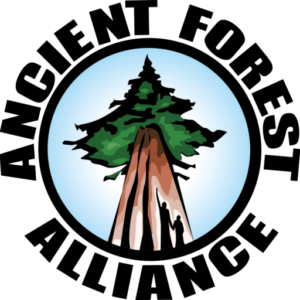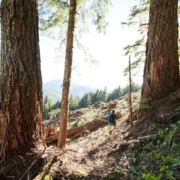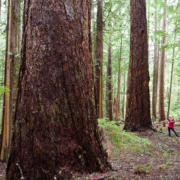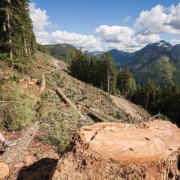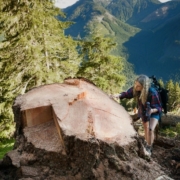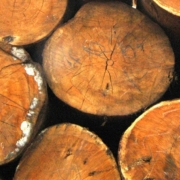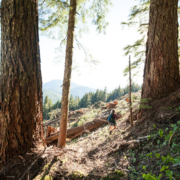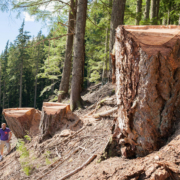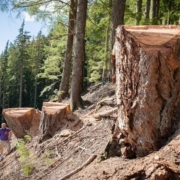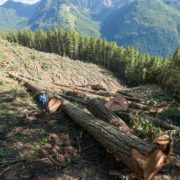Company pressured to halt harvesting of old-growth within city’s watershed
Some Island Timberlands' stakeholders are adding pressure to the forestry company over the harvesting of old growth within Port Alberni's watershed.
As logging continues in McLaughlin Ridge near Cathedral Grove, the B.C. Teachers Federation voted to ask Island Timberlands to sell the forestry land it owns in the steeply sloped area. The motion passed Jan. 31 at a BCTF assembly of district representatives, urging the forestry company to sell McLaughlin Ridge to “an organization(s) that will conserve and preserve forest lands.”
The old growth forest is within the China Creek watershed, the drinking water source for more than 20,000 people in Port Alberni and Beaver Creek. Ken Zydyk, president of the Alberni Teachers Union, said the request for Island Timberlands to divest the land was first approved by public educators in Port Alberni.
“There are many teachers concerned about the current practices of Island Timberlands,” he said.
Local teachers wonder if the harvesting in McLaughlin Ridge ensures “the protection of our watershed so that Port Alberni can continue to have high quality, clean water,” added Zydyk.
The Jan. 31 motion also asks Island Timberlands to gain certification from the Forest Stewardship Council, an international system that promotes “strict environmental and social standards,” according to the council's website.
Canadian members of the Forest Stewardship Council include Alberta-Pacific Forest Industries, the National Aboriginal Forestry Association and B.C.-based Brinkman and Associates Reforestation. The teachers' request now goes to the B.C. Investment Management Corporation, a major Island Timberlands shareholder. The BCIMC invests pensions for teachers and other public sector employees around the province.
“Teachers are uncomfortable that we put some of our salary towards our pension, it's like a savings account that we access later,” Zydyk said, adding that the concern was if teachers' funds are “being used in a socially responsible way.”
The forestry company has met with municipal officials on almost a monthly basis since city council voted last August to join a lobbying effort to halt harvesting in McLaughlin Ridge.
This push is being led by the Watershed Forest Alliance, a local environmental group that fears the forestry activity is unsustainable, harming McLaughlin Ridge's wildlife and compromising Port Alberni's source of drinking water.
A letter from Island Timberlands to the city in August 2014 said the company's construction of logging roads, harvesting and replanting is executed with a focus on water quality. The company stated lots are usually replanted within nine months of harvesting.
The administrative body that enforces provincial law on private forestry companies has deemed Island Timberlands to be acting responsibly. The Private Managed Land Council has investigated the company's activities in the China Creek Watershed.
“Their report concluded that our practices are above average for coastal operations,” wrote Morgan Kennah, IT's community affairs manager, in the letter to the city. “The study noted that although harvesting activity has increased in the area in the past decade, the hydrological capacity for the watershed to balance this harvesting with current forest cover and regenerating forests is below the threshold for best management in watersheds.”
Turbidity – or water cloudiness – has been an issue raised in the push to halt logging in the watershed. Turbidity can interfere with municipal water treatment systems, a concern that led Island Health to issue boil water advisories for Nanaimo and the Comox Valley after heavy rain in December. An advisory was not given for the Alberni Valley, as turbidity levels fell within the province's standard for healthy drinking water.
Island Timberlands' letter to the city noted that selling McLaughlin Ridge would be costly and bring no guarantee that water quality will improve.
“Acquiring land in the watershed in an attempt to impact seasonal turbidity will certainly be expensive, and is highly unlikely to eliminate the need for filtration,” wrote Kennah.
Meetings between the Watershed Forest Alliance, city officials and the B.C. Ministry of Forests are expected to continue.
On the agenda for Tuesday's council meeting, a motion proposed to form the Alberni Valley Watershed Management Committee to oversee forestry and drinking water issues.
